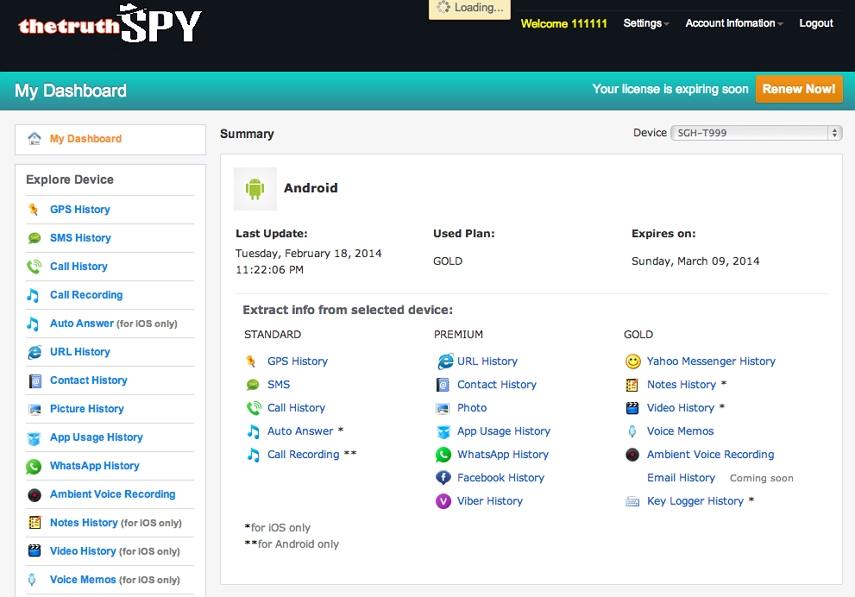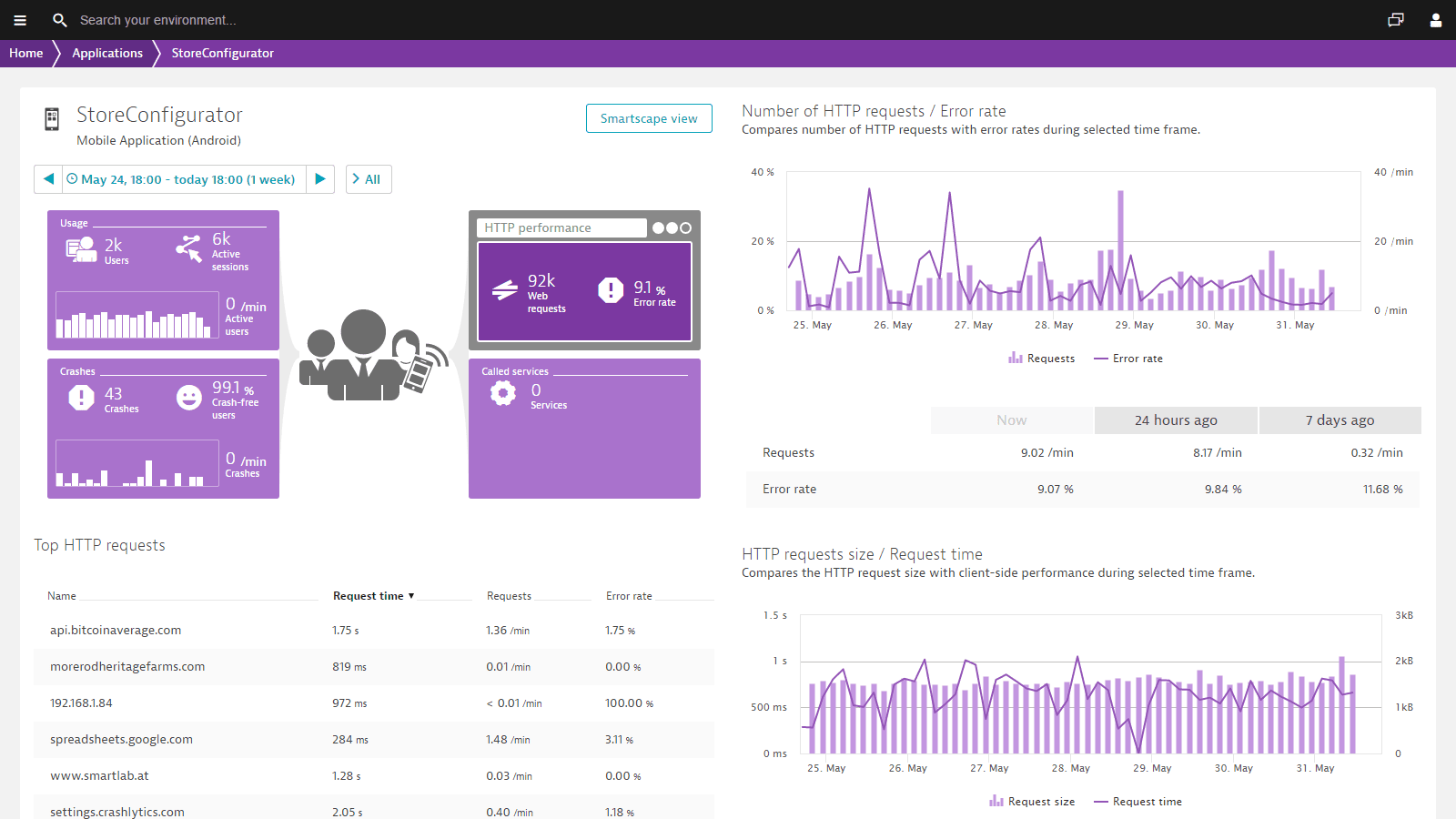In the rapidly evolving world of technology, remote IoT monitoring on Android devices has become a game-changer for businesses and individuals alike. The ability to monitor IoT devices from anywhere using a free Android application has opened up new possibilities for efficiency and cost savings. This article will delve into the concept of remote IoT monitoring, explore the best free Android apps available, and provide actionable insights for users.
As more and more devices become connected to the Internet of Things (IoT), the need for effective monitoring solutions grows exponentially. Remote monitoring allows users to access real-time data, control devices, and receive alerts—all from the convenience of their Android smartphones. This not only enhances productivity but also ensures better management of resources.
Whether you're a tech enthusiast, a small business owner, or a homeowner looking to enhance your smart home setup, understanding remote IoT monitoring is essential. In this article, we'll explore everything you need to know about free Android apps that enable seamless remote IoT monitoring. Let's dive in!
Read also:Exploring Rulzin Kannada 2024 A Comprehensive Guide For 2024
Table of Contents
- Introduction to Remote IoT Monitoring
- Benefits of Remote IoT Monitoring
- Android Free Apps for Remote IoT Monitoring
- Best IoT Protocols for Android
- Security Considerations
- How to Set Up Remote IoT Monitoring on Android
- Troubleshooting Tips
- Cost-Effectiveness of Free Solutions
- Real-World Applications
- Future Trends in Remote IoT Monitoring
Introduction to Remote IoT Monitoring
Remote IoT monitoring refers to the process of tracking, analyzing, and managing IoT devices from a distance. This technology leverages the power of the internet and mobile applications to provide users with real-time updates and control over their connected devices. The rise of smart homes, industrial automation, and wearable technology has fueled the demand for efficient monitoring solutions.
Why Is Remote Monitoring Important?
Remote monitoring is crucial for several reasons:
- Convenience: Users can access their IoT devices from anywhere, eliminating the need for physical presence.
- Efficiency: It allows for proactive maintenance and troubleshooting, reducing downtime and operational costs.
- Scalability: As IoT ecosystems grow, remote monitoring ensures seamless integration and management of devices.
Benefits of Remote IoT Monitoring
The advantages of remote IoT monitoring extend beyond mere convenience. Here are some key benefits:
Enhanced Productivity
By automating routine tasks and providing instant access to critical data, remote monitoring significantly boosts productivity. Businesses can focus on strategic activities while leaving operational tasks to the monitoring system.
Improved Resource Management
With real-time data at their fingertips, users can optimize resource usage, reduce waste, and achieve cost savings. For example, smart energy management systems can monitor electricity consumption and suggest ways to improve efficiency.
Increased Security
Remote IoT monitoring enables users to set up alerts and notifications for suspicious activities, enhancing the security of their IoT devices. This is particularly important in industries such as healthcare and finance, where data breaches can have severe consequences.
Read also:Exploring The Exciting Universe Of Gaming World Digitalrgsorg A Complete Guide
Android Free Apps for Remote IoT Monitoring
There are numerous free Android apps available for remote IoT monitoring. Here are some of the most popular options:
1. Blynk
Blynk is a user-friendly app that allows users to monitor and control their IoT devices with ease. It supports a wide range of hardware platforms and offers a drag-and-drop interface for creating custom dashboards.
2. Node-RED
Node-RED is a powerful tool for building IoT workflows. Its Android app provides a mobile interface for monitoring and controlling devices, making it an excellent choice for advanced users.
3. IoT Inspector
IoT Inspector focuses on security and privacy, helping users identify potential vulnerabilities in their IoT devices. It provides detailed reports and recommendations for improving device security.
Best IoT Protocols for Android
Choosing the right IoT protocol is essential for ensuring seamless communication between devices. Some of the most popular protocols include:
MQTT
MQTT (Message Queuing Telemetry Transport) is a lightweight protocol ideal for low-bandwidth environments. It is widely used in IoT applications due to its efficiency and reliability.
CoAP
CoAP (Constrained Application Protocol) is designed for resource-constrained devices and offers low-latency communication. It is particularly useful for IoT applications requiring real-time data transfer.
Security Considerations
Security is a critical aspect of remote IoT monitoring. Here are some best practices to ensure the safety of your IoT devices:
- Use strong passwords and enable two-factor authentication wherever possible.
- Keep your devices and apps up to date with the latest security patches.
- Avoid connecting to public Wi-Fi networks when accessing sensitive data.
How to Set Up Remote IoT Monitoring on Android
Setting up remote IoT monitoring on Android involves several steps:
Step 1: Choose the Right App
Select an app that meets your specific needs and is compatible with your IoT devices. Popular choices include Blynk, Node-RED, and IoT Inspector.
Step 2: Connect Your Devices
Follow the app's instructions to connect your IoT devices to the monitoring system. This may involve configuring Wi-Fi settings or pairing Bluetooth devices.
Step 3: Customize Your Dashboard
Create a custom dashboard to display the data you want to monitor. Most apps offer drag-and-drop interfaces for easy customization.
Troubleshooting Tips
Even the best systems can encounter issues. Here are some troubleshooting tips for remote IoT monitoring:
- Check your internet connection to ensure stable communication between devices.
- Restart your devices and apps if you experience connectivity problems.
- Consult the app's documentation or support forum for additional assistance.
Cost-Effectiveness of Free Solutions
Free Android apps for remote IoT monitoring offer significant cost savings compared to paid solutions. They eliminate the need for expensive hardware and software investments, making them accessible to individuals and small businesses alike. However, it's important to evaluate the features and limitations of free apps to ensure they meet your requirements.
Real-World Applications
Remote IoT monitoring has numerous real-world applications across various industries:
Smart Homes
Homeowners can monitor and control smart lights, thermostats, and security systems from their Android devices, enhancing comfort and security.
Healthcare
Hospitals and clinics use remote monitoring to track patient vitals and ensure timely interventions, improving patient outcomes.
Agriculture
Farmers leverage IoT sensors to monitor soil moisture, weather conditions, and crop health, optimizing resource usage and increasing yields.
Future Trends in Remote IoT Monitoring
The future of remote IoT monitoring looks promising, with advancements in AI, machine learning, and 5G technology set to revolutionize the field. These innovations will enhance data processing capabilities, improve predictive analytics, and enable more sophisticated monitoring solutions.
AI-Driven Monitoring
AI-powered systems will analyze vast amounts of data to identify patterns and predict potential issues before they occur, enabling proactive maintenance and reducing downtime.
5G Connectivity
The rollout of 5G networks will provide faster and more reliable connections, facilitating real-time monitoring and control of IoT devices on a massive scale.
Conclusion
Remote IoT monitoring on Android devices offers unparalleled convenience, efficiency, and security. By leveraging free apps and adhering to best practices, users can effectively manage their IoT ecosystems and unlock new possibilities. We encourage you to explore the options discussed in this article and share your experiences in the comments below. Don't forget to check out our other articles for more insightful content!

